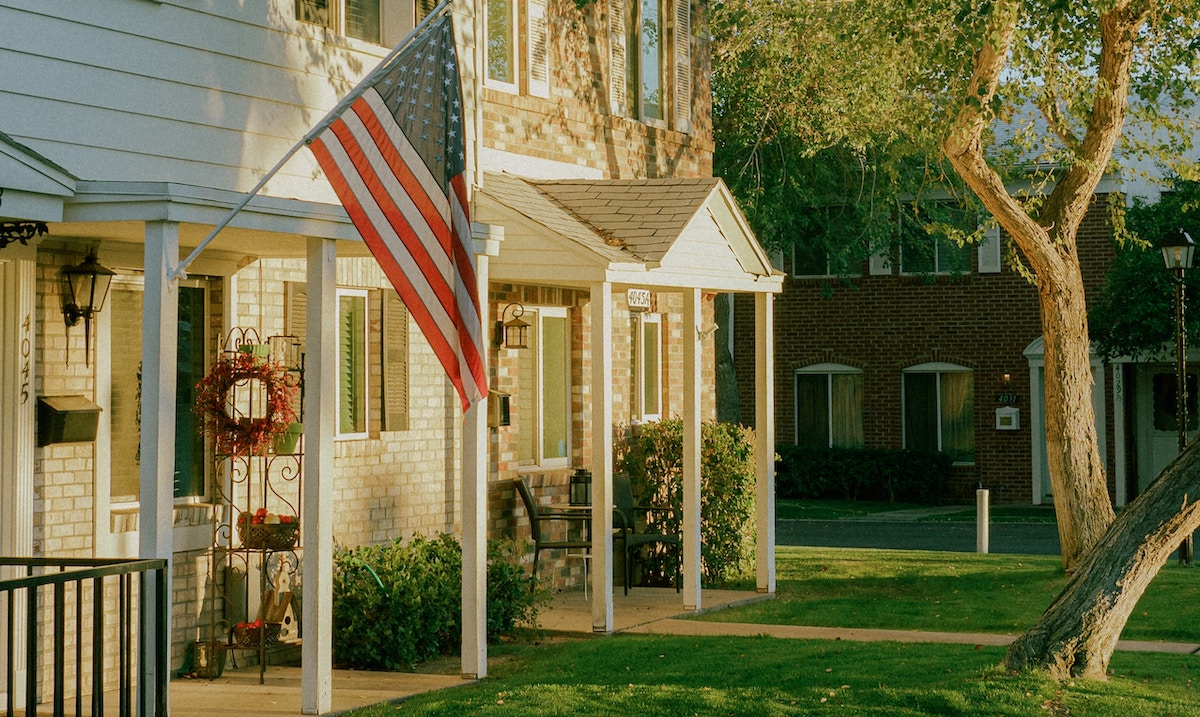Finance and Investments
Your Guide To Earning Passive Income On A Rental Property
Last Updated Jul 16, 2024


Earning money without the daily grind sounds pretty idyllic for most. This is the motivator behind passive income – earning money without doing a lot of work to achieve it. Of course, in finance, nothing is that straightforward.
Passive income is a complex topic, particularly in property rentals where the market is always changing. While there are no hard and fast rules on how to earn passive income from a rental home, this quick FAQ guide will help decipher five big questions.
5 FAQs on earning passive income on a rental home
1. What is passive income in real estate?
In theory, passive income is money that you earn regularly, without doing too much actual work to get it. This shouldn’t be confused with things like owning shares or crypto – that is called “portfolio income”. Passive income is different. It’s an income-producing activity and you may do a little work to achieve it, but it’s different to the way you earn your wages or what’s known as ‘active’ income.
In real estate, passive income examples include:
- Rental income from a long-term or short-term rental, managed by you or a property manager
- Returns from a Real Estate Investment Trust (REIT) that owns and manages properties on behalf of a group of investors
- Renting out a spare room or an ADU to generate income
The type, hours of work, and method for managing your real estate investment will impact whether this is classed as passive or active income, which we will get into next.
2. Is my rental income passive or active income?
Whether your rental home generates passive or active income will depend on your individual circumstances. It’s always a good idea to speak to a financial advisor or accountant before making any financial decisions, as there is no one-size-fits-all answer here.
For most long-term rental homeowners, your income will be considered ‘passive activity’ by the IRS. It means you can claim tax deductions for related expenses against this income, but any losses need to carry forward until you generate passive income or sell the home.
There’s also what’s known as “active participation” in a rental home. The IRS takes into account that you spend time making major decisions about your home. Even if you outsource the heavy lifting to Belong, you could still qualify as the person appointing management of your home and approving residents and expenditures.
If you’re found to actively take part in these decisions, you may be able to deduct up to $25,000 of your passive losses. There are income thresholds and caps on deductions here so you will need to speak to an accountant to determine if you qualify for this.
If you’re self-managing the home, keep a close eye on the hours you work. If you spend more than 750 hours on your rental home or related businesses in a year, it’s likely the IRS considers you to be a ‘real estate professional’ for tax purposes. In this case, your income isn’t passive income. Same if you flip houses for profit, as this is an example of active income.
3. Is renting out a home a good way to make money?
It definitely can be. Rental homes have the potential to be a good investment and some people even manage to live off their passive rental income. But the truth is, no one can predict how much money they will ever make on any investment. Real estate, shares, and portfolios, crypto – for every reward comes risk.
But Belong has a very different vision for the US housing market than the one that currently exists. One where homes are in the hands of real people, not corporations. Helping homeowners to achieve their financial goals through real estate and to help those who rent to find a sense of belonging in the houses they call home.
This is why we’re focused on disrupting the way long-term renting works. For too long, both homeowners and their residents have been let down by property management companies. Renters are treated like second class citizens while the owners of rental homes are left frustrated by hidden fees and poor communication. It shouldn’t have to be this way.
There are so many far-reaching benefits for both homeowners and the wider community when you opt to rent out a home on a long-term basis. Belong wants to bring back confidence to homeowners to choose this option to achieve financial freedom. And make sure you can do it without having to lift a finger.
To do this, we partner with homeowners to determine financial goals. We guarantee rent and give you transparency over how your rental income is working to achieve them. We offer innovative financial solutions to spread the cost of expenses and keep your cash flow steady. And we put everything you need at your fingertips with an easy-to-use app.
Discover Belong: Get great residents and guaranteed rent paid like clockwork. We’ll determine how to achieve your financial goals and then set out to help you achieve them through passive income. Learn more on our homeowners page.
4. What is the tax rate on passive rental income?
How you are taxed, along with any deductions and benefits you’re entitled to, varies depending on how your property is treated on the rental market and how much time you spend in the home.
For this example, let’s say the home is a long-term rental and residents live there full-time on a 12 month lease. Any income earned is reportable on your tax return and you will be able to deduct expenses based on the percentage of days in the year that the home was rented out.
Rental income tax works on your marginal tax bracket. As the United States uses a progressive tax system, your tax rate will increase as your income grows, ranging between 10% and 37%.
You can also lower your tax burden or the amount of money you will owe at the end of the year by claiming certain deductions on your tax return. Rental properties attract many strategies that can help lower your tax liability, so good record keeping is essential. Don’t forget that federal income tax isn’t the only thing to consider when owning a rental home. There’s also property taxes, state taxes, capital gains, maybe even estate taxes for an inherited home. It’s all dependent on your personal finances and situation which is why it’s best to speak to a financial or tax advisor.
Read More: 2024 Federal Tax Brackets on Rental Income: A Guide for Rental Home Owners
5. Is an inherited home considered passive income?
If the home you inherit is rented, that income will be considered your passive income and can be financially beneficial.
Besides enjoying passive income, the IRS will consider the value of the home on its current market value, known as a "stepped up basis." This means that when it comes to capital gains tax if/when you do sell the home, the appreciation will be based on the value that you inherited it at. This is a big difference to if you were to buy an investment property for yourself, where appreciation will be based on what you paid for the home. You can learn more about the tax considerations for inherited homes here.
Reach your financial goals with guaranteed rent
Belong is simplifying the rental experience and helping more homeowners reach their financial goals through real estate. Tell us about your rental home now to get started.
You can also visit our homeowner's page to learn more about how our modern, tech-enabled services are helping people ditch property management in cities across the US including Austin, San Antonio, Tampa, Raleigh/Durham, Dallas/Fort Worth, Houston, Miami and more.
Disclaimer: It’s important to consult with a professional and consider your personal financial situation, local microeconomic factors and other risk factors before choosing to invest in real estate. This article should not be considered financial or legal advice.
About The Author
Tyler Infelise
Co-Founder & Head of Product
I co-founded Belong because I'm on personal mission to eliminate stressful, anxiety-filled experiences for others. I lead the product team here, bringing with me 10+ years of product management and marketing experience. Prior to Belong, I built a company called Beepi with my cofounders. I am a big foodie, love movies of all kinds, and live for March Madness basketball.




